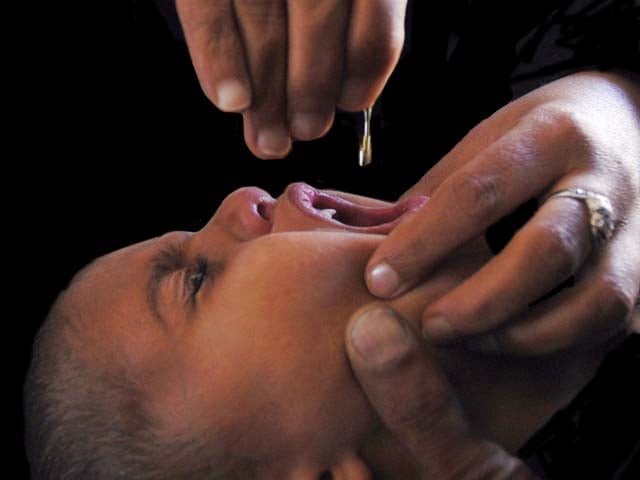Polio virus transmission: In capital, slums declared high-risk zones
Islamabad has been recently included in the list of 33 high-risk districts by the Pakistan Polio Programme.

Polio virus transmission: In capital, slums declared high-risk zones
A three-day anti-polio campaign in high-risk districts including the capital was launched on Wednesday amid fears the crippling disease may spread further.
Slums and less affluent sectors in the capital have been declared high-risk zones for transmission of polio virus due to poor sanitation and an influx of migrants.
Islamabad has been recently included in the list of 33 high-risk districts by the Pakistan Polio Programme and its international partners which will be covered by the Polio Sub-national Immunisation Campaign, according to official sources. Some 34 million children will be vaccinated in high-risk districts during the three-day campaign.
The high-risk zones in the capital include sectors I-11, H-11 and G-7/3, Tarlai, Sohan, Rawat, Tarnol and Meherabad. Considering the situation in the capital, 10 social mobilisers and four union council communication officers have recently been deployed under the Communications Network, a UNICEF-funded project to increase awareness about polio immunisation, the sources said.
“There is a need to administer polio drops to every child under the age of five in high-risk zones of the capital, otherwise the situation will spiral out of control next year, said Dr Nima Abid, the polio team leader from the World Health Organisation (WHO).

He was talking to The Express Tribune, after the inaugural ceremony of “School Mobilisation Campaign involving children in polio eradication” held on Monday at Government Girls High School, Tarlai, on the outskirts of the capital. The campaign has been kicked off in 5,000 schools in 33 high-risk districts on the first day.
Under the School Mobilisation Campaign, 100,000 students from grades six to 10 have been designated as polio heroes. During polio campaigns, these students wearing their polio visors and badges will hold rallies and visit at least 10 houses in their locality after school hours on every campaign day to identify missed children and share their data with vaccination teams. They will walk in front of polio vaccination teams during the campaigns.
Dr Abid said a large number of migrants and refugees in the capital and poor sanitation are responsible for the decision to designate Islamabad as a high-risk district. “Operational gaps in the campaign at the grassroots level need to be addressed immediately.” Missed children and parental refusals in the Federally Administered Tribal Areas and Balochistan hinder polio campaigns, he said. “Innovative strategies need to be devised to immunise every child.”
National focal person on polio eradication, Shahnaz Wazir Ali admitted that poor hygiene and sanitation were major factors in the transmission of polio virus.
Meanwhile an All Parties Conference (APC) has been called on Wednesday in view of the recommendation by the Independent Monitoring Board (IMB) of the Global Polio Eradication Initiative to clamp travel restrictions on passengers travelling from polio-endemic countries including Pakistan. The APC is being convened by Pakistan Institute of Legislative Development in cooperation with the United Nations Children Fund.
Published in The Express Tribune, December 18th, 2012.



















COMMENTS
Comments are moderated and generally will be posted if they are on-topic and not abusive.
For more information, please see our Comments FAQ